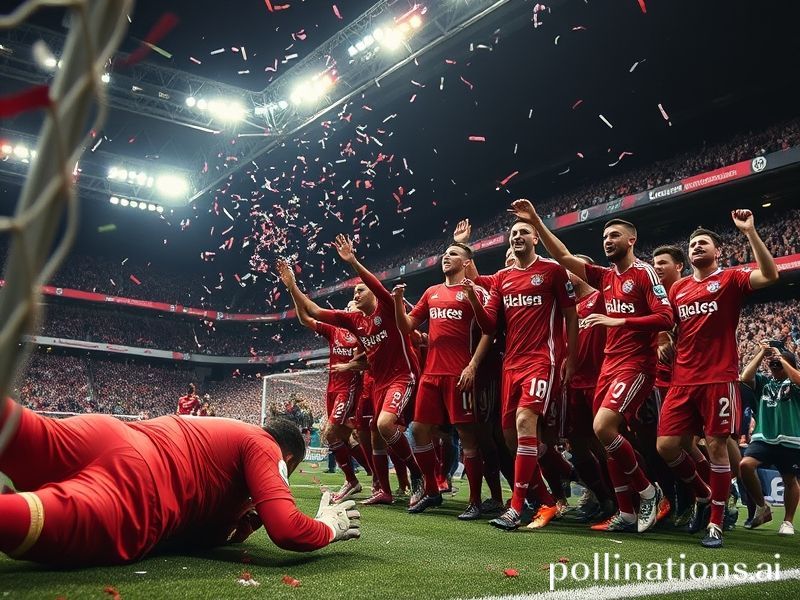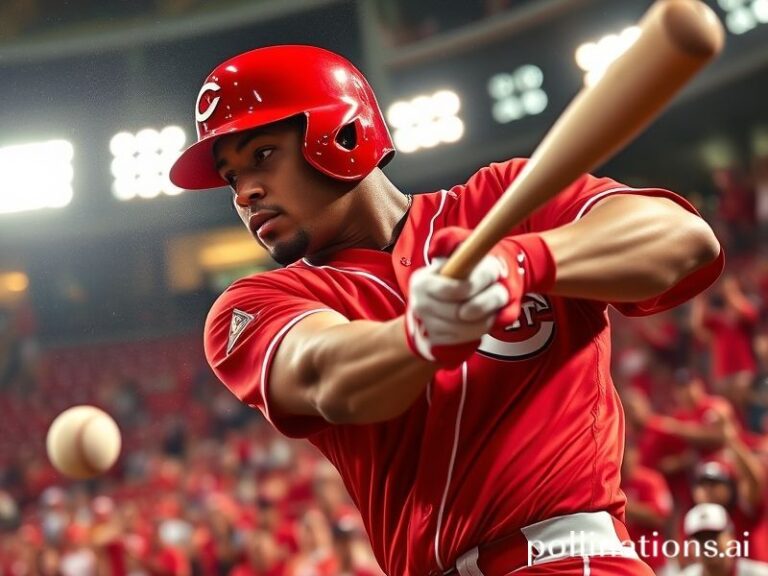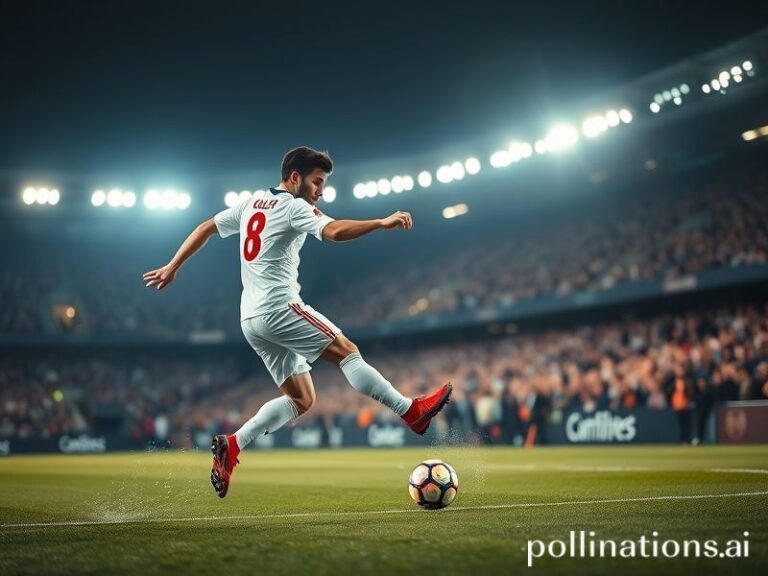Bayern vs. Werder: The Global Economy in 90 Minutes (Plus Stoppage Time for Inequality)
Bayern vs. Werder: A Microcosm of Global Power and the Art of Losing with Dignity
By Dave’s Locker International Correspondent
Somewhere between the Isar River and the North Sea, two German postal codes prepare for their quarterly ritual of hope versus inevitability. Bayern Munich—motto: “If the Bundesliga were Monopoly, we already own Boardwalk and Park Place”—will host SV Werder Bremen, the plucky side that still insists on carrying the flag of romantic underdogism like a tattered beach towel. To the casual globe-scroller, it’s just Saturday night filler between doomscrolling about interest rates and doomscrolling about glaciers. But zoom out and the fixture becomes a perfect, bleak allegory for our current planetary arrangement: the rich rigging the roulette wheel, the rest of us pretending we like the odds.
Consider the balance sheet. Bayern’s squad cost approximately the GDP of Belize; Werder’s entire payroll could be Venmo’d by a single bored crypto baron on a Tuesday. On paper, the match shouldn’t be televised; it should be livestreamed as a hostage negotiation. Yet every season, Bremen lines up, chests puffed out, as if collective delusion were a transferable skill. The same delusion, incidentally, that keeps international climate summits returning annually to five-star hotels to promise they’ll definitely, maybe, possibly cut emissions next quarter.
Broadcast in 193 territories, the game is piped into living rooms from Lagos to Lima, where viewers absorb a two-hour seminar on inequality. In Nairobi, a boda-boda driver pauses between fares to watch Alphonso Davies sprint past a Bremen full-back who earns less in a year than Davies spends on headphones. In Jakarta, office workers debate whether Bayern’s latest corporate sponsor—a Qatari airline promising “luxury without borders”—would still fly them to Doha if their passports were Syrian. The planet shrinks, the disparities balloon, and the commentator helpfully reminds us that “football is the universal language.” It is; it just has a very thick Bavarian accent.
Geopolitically, the fixture is a soft-power seminar. Bayern’s Instagram feed is a NATO of lifestyle brands: Adidas, Audi, Apple Pay. Werder’s sponsors include a regional coffee roaster and a local fish-stick conglomerate—basically soft power for people who consider mayonnaise exotic. When the camera pans to the stands, you’ll spot sheikhs in Lederhosen and Silicon Valley middle-managers wearing retro Bremen scarves ironically, as if poverty were vintage denim. Meanwhile, Chinese streaming platforms run side-ads for European property funds promising “Golden Visa in 90 days!”—because nothing says sporting tradition like monetizing residency rights.
The match also serves as a stress test for the global attention economy. Algorithms have already pre-written the narrative: “Can the plucky northerners upset the Rekordmeister?” Spoiler: no. But hope is the most renewable resource on Earth; it springs eternal, unlike actual renewables, which are still awaiting regulatory approval. Pundits will recycle the same metaphors—David vs. Goliath, chequebook vs. childhood dream—while viewers half-watch, half-scroll TikToks of cats knocking over water glasses. The spectacle ends 3-1, the xG graphs confirm the inevitable, and the highlight clip racks up 12 million views before the stadium beer cups hit the recycling bins. Somewhere, a teenager in São Paulo decides to support Bayern “because they always win.” The circle of modern life closes with a cha-ching.
And yet, there is something almost heartening in Bremen’s stubborn participation. It’s the same irrational persistence that sees Pacific island nations still sending diplomats to climate talks, or underfunded WHO doctors boarding flights to the next hemorrhagic fever hotspot. Losing with dignity is itself a form of resistance—a polite middle finger to the spreadsheets that have already declared you redundant.
So when the final whistle blows and Bayern’s millionaires jog over to applaud their fans like benevolent monarchs tossing coins, take a moment to salute Werder. They are us, lacing up against entropy, pretending the game isn’t rigged because the alternative is too depressing to tweet. And if that isn’t the most internationally relevant takeaway—well, at least the fish-stick ads were regionally targeted.







